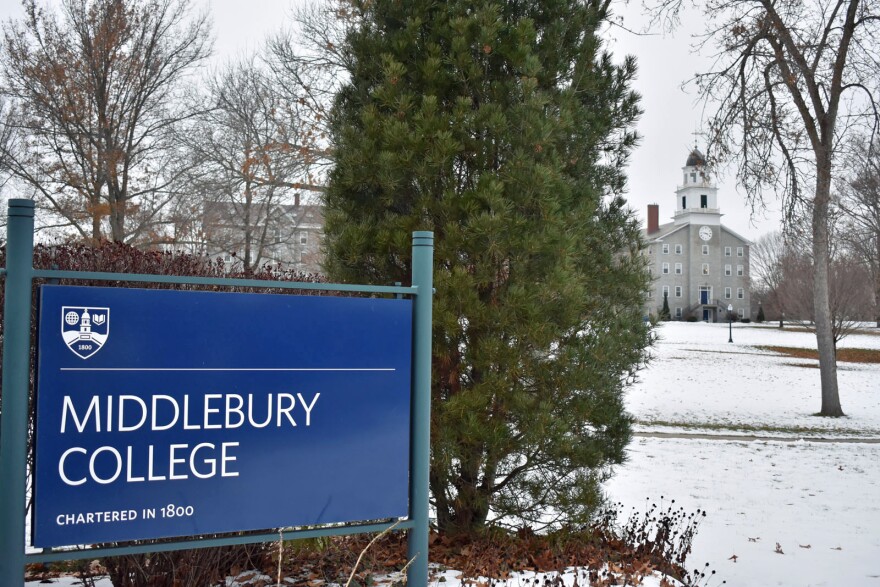It has been a month since Russia invaded Ukraine and more than 10 million people have been internally displaced or left the country as refugees.
Vermont’s Lieutenant Governor has been holding a series of a virtual discussions called a Seat at the Table. This week three Ukrainian students attending Middlebury College talked about the invasion and their families remaining in the war zone.
About a dozen students from Ukraine are studying at colleges across Vermont. Three Middlebury College students are watching from afar and attempting to stay in contact with their families as Russia invades their hometowns.
Middlebury sophomore Mariia Dzholos says her family is currently in a city in western Ukraine after being displaced from their home in Kviv. She says it is the second time her parents have been internally displaced by Russian aggression.
“My family and I became internally displaced people for the first time in 2014 when Russia invaded Donbas, the eastern part of Ukraine, right after it annexed Crimea. My grandmother, an 89-year-old woman, a child of the Second World War, is still in Donetsk region. Yesterday a bomb fall on an apartment next to her yard.”
Dzholos describes her sister’s experience in and escape from Mariupol.
“When the fire ceases they would collect snow and cook pasta because Russia does not let any humanitarian convoys to Mariupol. Two days before she left a bomb fell next to the school where she and her family took refuge in. After she escaped she told us that at that point it didn’t matter whether she will die from the shelling on the way out or from hunger or injury in Mariupol. However there was a small chance to survive and she had to seize it for her 8 year old son.”
Middlebury senior Masha Makutonina was born in Odessa where half her family currently lives.
“Odessa is preparing for perhaps further escalation of the conflict. They have been successful at rebuking multiple missile attacks. There are a lot of Russian military ships that are currently stationed and can be seen from Odessa port.”
Rostyslav Yarovyk is from Lviv in western Ukraine where he lived until he enrolled at Middlebury College last September.
“Since the war started I’ve just been thinking how I cannot return home. The first day I came to the United States I immediately thought that there’s no such coffee and no such chocolate that can compare to my hometown. It’s still a taste that probably has been fueling my love for my town, for the people of that town, for my friends and family who are still there. I don’t know when I will be able to go home, see my parents and family, see my town the beautiful Polish Austrian and Renaissance architecture, to know when I will be able to taste that coffee and chocolate again. The friends that I made are all there.”
Yarovyk has been working while he attends college and sending money back to his family, who do not have the money or means to escape. He celebrated his birthday last week and says while he appreciates offers of direct support, he would rather see people help those in Ukraine and refugees.
“The only thing that I would ever want for my birthday is to be able to return home. That money that I collected personally I sent it all back home.”
The students offered suggestions as to how people can help — don’t buy Russian products and make on-line purchases from Ukrainian merchants.
Mariia Dzholos thinks the U.S. should impose a no fly zone.
“Would you act differently if your streets were covered with dead bodies, if buildings familiar to you were being bombed and destroyed, if your acquaintances were in mass graves or refugee camps. Help us to protect the skies as much as if you would protect yours.”


